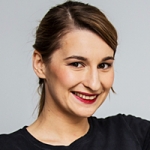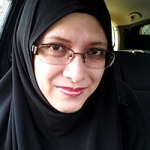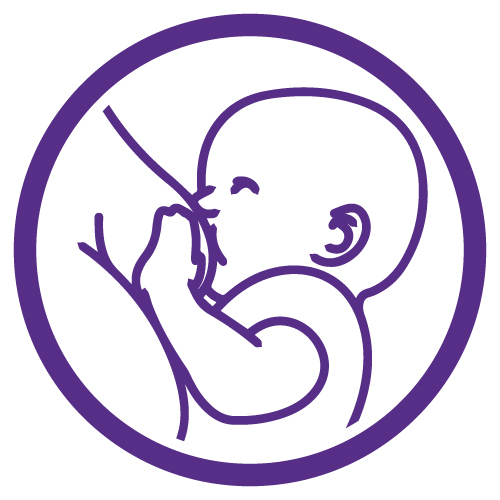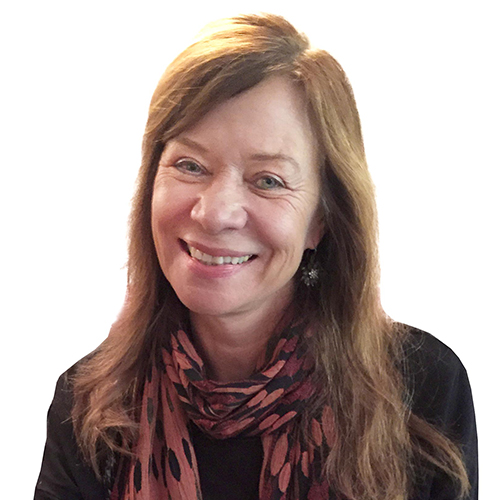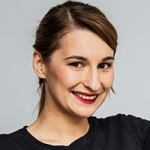
Rusty Pipe Syndrome: A Case Report From Poland

Anna has been working as a midwife since 2009. From the very beginning of her studies she has been fascinated with breastfeeding. During her studies for her Bachelor's and Master's degrees in Midwifery, her main area of interest was promotion and support for breastfeeding among women. Anna's interest in breastfeeding turned into a passion that led her to pursue the Polish Certification of Lactation Consultant and she is working toward certification as an IBCLC. She opened a private practice and a support group for local women in Krakow (cracko). Anna’s Interest and passion for lactation and breastfeeding have deepened during her current PhD studies. She is a PhD candidate in 2018 at University Medical College and is the coordinator of the Krakow Human Milk Bank.
Her scientific area of expertise: change in milk composition (macronutrients), human microbiota during pregnancy, lactation as well as tandem breastfeeding. Her research is carried out in the Department of Obstetrics and Perinatology. Anna is the author of many lectures and workshops for students of midwifery and medicine in area of breastfeeding, lactation and the variation of composition of human milk. Since 2016 she has been popularizing the science of human lactation in Poland and she is always finding new ways to promote and support breastfeeding women. In her spare time she practices meditation, yin yoga and is learning how to dance rock and roll.
Topic: Rusty Pipe Syndrome: A Case Report From Poland - [View Abstract]
Bloody nipple discharge is an unusual experience during lactation for both the mother and her attending physicians. Painless bleeding from the breasts in the early post-partum period can be a physiological condition called a rusty pipe syndrome. This report describes the case of bilateral bloody nipple discharge that started after caesarean section and subsequently ceased within a few days.
Natural breastfeeding is the best way of nourishing newborns and infants. The process of breast milk production starts as early as between weeks 16 and 22 of pregnancy and colostrum can appear from the nipple in the following weeks. Milk containing blood can be a cause of concern for the mother and her physician. The reasons can be various; however not all of them would be caused by bleeding from the glandular tissue.

View Details / Enroll
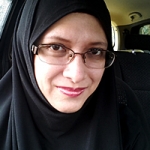
Scaling Up Skills and Reliability of Breastfeeding Peer Counselors - 7 Years of Malaysian Experience

Nadrah Arfizah Arifin (MBBS, MPH, IBCLC) is a medical professional in public health and a lactation consultant who obtained her medical degree from University of Malaya, Kuala Lumpur in 2004. Her involvement in breastfeeding support and advocacy started in 2007 as a local breastfeeding supporter at her workplace. She further involved in community-based breastfeeding support voluntarily by joining the Malaysian Breastfeeding Peer Counselor Association (MBfPCA) in 2010. She became the first breastfeeding peer counsellor of MBfPCA who successfully upgraded to become the program trainer in 2011 to 2012, thus making the framework for Train of Trainer program in MBfPCA in effort to further grow the network. She is currently the President of MBfPCA and together with other Core Trainers, they plan for sustainability of breastfeeding support by peer counsellors for Malaysian community. While doing her Doctoral degree in Public Health (DrPH), she is also working on few projects in MBfPCA particularly in capacity building of breastfeeding peer counselors with the interest of maintaining its integrity, reliability and relevancy through monitoring and evaluation of community breastfeeding support program.
The roles of peer counselors (PC) in breastfeeding support is important to reach mothers and families in community as they would bridge the gaps within the warm chain of breastfeeding support. However, challenges has overcome in many forms, especially their reliability in providing breastfeeding support skills and knowledge. Malaysian Breastfeeding Peer Counselors (MBfPC) program has started in 2010 to enhance breastfeeding support for Malaysian community. Its training syllabus were adapted and modulated to be culturally acceptable. More than 500 PCs were trained.
The original syllabus was continuously being revised prior to each training since Malaysia is multicultural with great diversity, with few adaptations of new tools to enhance the understanding among the trainees whom majority are not health personnel. MBfPC Association (MBfPCA) is responsible to reliability queries by other parties, thus overseen the needs for MBfPC training reform. Three training levels were introduced in 2016; entrance, advanced, and train-of-trainers; to increase reliability of certified PC, even though the sustainability of the network is yet to be observed. The mechanisms used to select, train and certify the PCs had strengthened the roles and functional relevancy of MBfPCA existence in Malaysian scenario. This presentation will share the challenges and framework of capacity building among PCs to function as breastfeeding peer supporters in Malaysian context.

View Details / Enroll
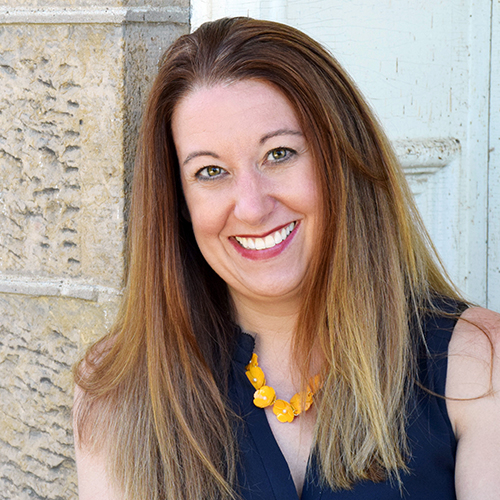
Scent-Sational Connections: The Role of Olfaction in Development

Gretchen Becker Crabb is an Occupational Therapist, Licensed Professional Counselor, and Endorsed Infant Mental Health Therapist. She is also a Certified Lactation Counselor, La Leche League Leader, and Brazleton Newborn Observation (NBO) trainer.
Gretchen’s passion is rooted in fostering lifelong relationships and connection through co-regulation in pregnancy and beyond. Her unique approach to lactation support and therapy is rooted in culturally attuned sensory, somatic, and trauma-informed mental health techniques.
Gretchen owns and operates a private practice in Madison, Wisconsin. For 21 years, she has provided developmental, trauma, feeding, and attachment support for tiny humans and their caregivers in birth to three, preschool, private practice, and peer group settings. Gretchen is an international speaker, reflective supervisor, and infant mental health consultant. In these roles, she offers compassionate, experiential, and reflective holding spaces for professionals. She is a proud United States Air Force spouse and mother of three boys.
Topic: Infant Mental Health: What Does It Look Like in Practice? - [View Abstract]
Topic: Scent-Sational Connections: The Role of Olfaction in Development - [View Abstract]
Topic: Sensory Processing and Breast/Bodyfeeding: Using Co-Regulation to Support the Feeding Relationship - [View Abstract]
Topic: Vestibular Processing: Using the Sixth Sense to Support Lactation and Parent/Infant Relationships - [View Abstract]
Though so obvious, the sense of smell is quite integral to well-being and human connection. As the loss of smell has been highlighted as one of the main symptoms of COVID, it invites a deeper understanding of the functional impacts of olfactory differences in children and caregivers. In this presentation, we will learn about the cultural history and neurological basis of olfaction. We will explore how smell plays a role in feeding, interpersonal relationships, and safety as well as olfactory strategies to promote physical health and co-regulation.
IMPORTANT: In this presentation we will do experiential work, so please have a journal, the following scents and food available:
One Citrus Scent (e.g. lemon, lime, orange)
One Woodsy/Earthy Scent (e.g. leaves, rocks, soil)
One article of clothing worn by someone you are close to (e.g. spouse, child, close friend, parent)
Carrot or other raw vegetable to eat
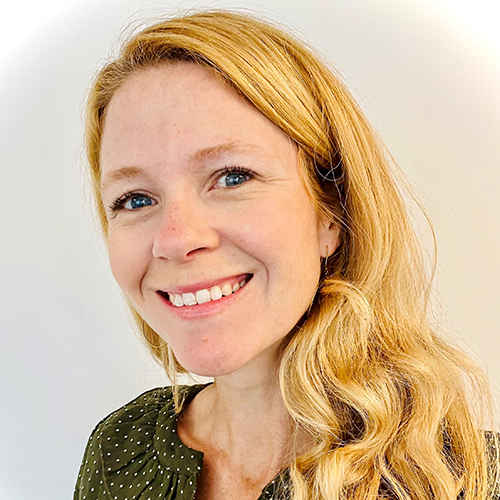
Seeing the Bigger Picture: Finding Clues in Our Breastfeeding Clients' Surroundings

Johanna Sargeant is an International Board Certified Lactation Consultant, teacher and writer based in Zurich, Switzerland. She is passionate about utilising her background in education, biological science, psychology and language to empower parents with empathetic support and evidence-based information through her private practice, Milk and Motherhood.
Originally from Australia, Johanna provides much-needed English-speaking support to many thousands of parents throughout Switzerland and across Europe, and has recently been writing new education modules for the European Society of Paediatric Research and the European Society of Neonatology. She has taught at the University of Zurich, has spoken as a panelist for the WHO's Baby Friendly Hospital Initiative congress in Geneva, has been an expert speaker and facilitator for Google, and has presented at a wide variety of international conferences. The complexities of her personal feeding experiences fuels her passion for providing knowledgeable, guilt-free infant feeding support globally.
Topic: Mastering Lactation Conversations: Creating Successful and Achievable Care Plans - [View Abstract]
Topic: Seeing the Bigger Picture: Finding Clues in Our Breastfeeding Clients' Surroundings - [View Abstract]
Topic: When Evidence and Empathy Aren't Enough: Changing Your Lactation Practice to Boost Client Success - [View Abstract]
Home visits play an integral role in the practice of many Lactation Consultants around the world. There are undoubtedly many benefits to meeting our clients in their own space, and one of these is that we can immediately garner a wealth of valuable information within a very short period of time. Along with learning a variety of quick and easy ways to stealthily, respectfully gather vital information about important feeding practicalities, this presentation will explore mental health, cultural humility and personal safety. We will explore the array of clues and red flags that may unknowingly surround you with regard to the clients' mental health and their overall safety. Additionally, as someone who works with clientele from over 75 different countries, Johanna shares what she has learned regarding the variations and commonalities between cultures when it comes to performing home visits, and which behaviours we can adopt to ensure continued humility and respect.
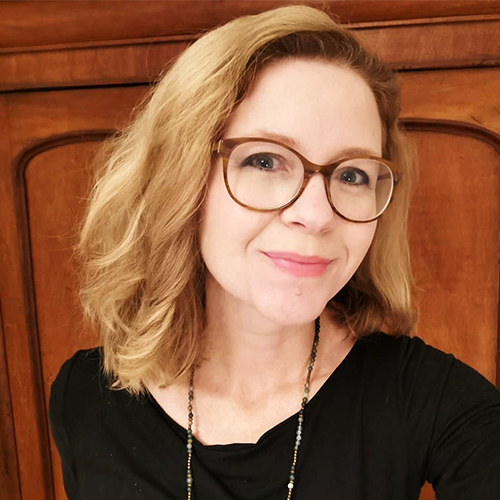
View Details / Enroll


Joy MacTavish, MA, IBCLC, RLC is an International Board Certified Lactation Consultant and certified Holistic Sleep Coach focusing on the intersections of infant feeding, sleep, and family well-being. Through her business, Sound Beginnings, she provides compassionate and evidence-based support to families in the greater Seattle area, and virtually everywhere else. She entered the perinatal field in 2007 as birth and postpartum doula, and childbirth and parenting educator. Joy holds a Master of Arts in Cultural Studies, graduate certificate in Gender, Women and Sexuality Studies, and two Bachelors degrees from the University of Washington. She enjoys combining her academic background, analytical skills, and passion for social justice into her personal and professional endeavors. Joy serves as an Advisory Committee Member and guest speaker for the GOLD Lactation Academy. When not working or learning, she can be found homeschooling, building LEGO with her children, or dreaming up her next big adventure.
Topic: Full-Term Breastfeeding/Chestfeeding: Benefits, Considerations, and Ways to Offer Support - [View Abstract]
Topic: Mindful Breastfeeding: How Lactation Professionals Can Support Calm and Connection - [View Abstract]
Topic: Sending Reports: What’s in it for IBCLCs? - [View Abstract]
Topic: Supporting Clients Facing Fertility Treatment - [View Abstract]
Topic: The Intersection Between Lactation, Sleep, and Family Well-Being - [View Abstract]
Topic: Weaning: Supporting Families Stopping Lactation and/or Ending Their Breastfeeding/Chestfeeding Relationship - [View Abstract]
Most lactation professionals love client interactions, but only send reports to health care providers out of a sense of duty. But writing and sending reports to our client’s health care providers can be more just an administrative task. Yes, it complies with IBLCE’s Code of Ethics to “Principle 4: Report accurately and completely to other members of the healthcare team” but it can also increase collaboration, improve client outcomes, and grow your practice.
This presentation seeks to reframe the process of writing and sending reports from a dreaded task to a clinical, ethical, and holistic way of supporting our clients while positively positioning ourselves as allied health professionals. Beyond the ethics (yes or no) and practicalities ("S.O.A.P." or not), a report to a health care provider is a source of communication about the consultation as well as marketing about your clinical skill, role in the client’s lactation experience, and lactation practice. With a combination of the why and how, this presentation outlines the ways in which reports to health care providers can be beneficial to the client, the health care provider, and the IBCLC, as well as devoting some time to specific strategies that lactation consultants can implement to streamline the process of sending reports so that we can get to the next client.

View Details / Enroll
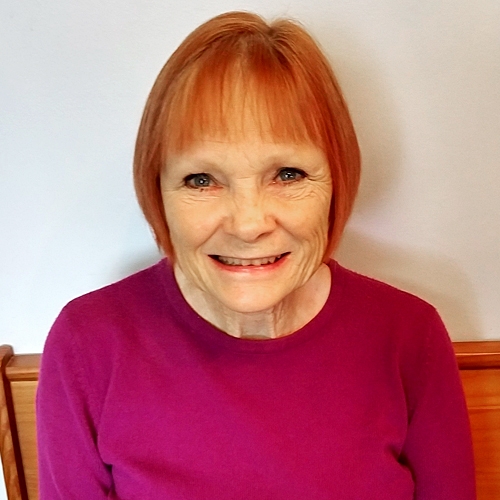
Sensory Integration and Breastfeeding

Nancy has been providing breastfeeding help and support for 40 years and has been a national speaker for 30. She has been a perinatal educator and consultant since the late 1970’s. Her second career is that of a Marriage and Family Therapist. Her passion is to explore the larger picture of the mother-baby dyad in the context of the breastfeeding relationship.
Topic: Teens and Breastfeeding - [View Abstract]
This session will look at sensory integration problems, now known as Sensory Processing Disorder. How might these difficulties impact the breastfeeding dyad and the family? We will describe this and present ideas on how to minimize the problems and support breastfeeding.

Sensory Processing and Breast/Bodyfeeding: Using Co-Regulation to Support the Feeding Relationship

Gretchen Becker Crabb is an Occupational Therapist, Licensed Professional Counselor, and Endorsed Infant Mental Health Therapist. She is also a Certified Lactation Counselor, La Leche League Leader, and Brazleton Newborn Observation (NBO) trainer.
Gretchen’s passion is rooted in fostering lifelong relationships and connection through co-regulation in pregnancy and beyond. Her unique approach to lactation support and therapy is rooted in culturally attuned sensory, somatic, and trauma-informed mental health techniques.
Gretchen owns and operates a private practice in Madison, Wisconsin. For 21 years, she has provided developmental, trauma, feeding, and attachment support for tiny humans and their caregivers in birth to three, preschool, private practice, and peer group settings. Gretchen is an international speaker, reflective supervisor, and infant mental health consultant. In these roles, she offers compassionate, experiential, and reflective holding spaces for professionals. She is a proud United States Air Force spouse and mother of three boys.
Topic: Infant Mental Health: What Does It Look Like in Practice? - [View Abstract]
Topic: Scent-Sational Connections: The Role of Olfaction in Development - [View Abstract]
Topic: Sensory Processing and Breast/Bodyfeeding: Using Co-Regulation to Support the Feeding Relationship - [View Abstract]
Topic: Vestibular Processing: Using the Sixth Sense to Support Lactation and Parent/Infant Relationships - [View Abstract]
Well-organized sensory systems provide the foundation for relational feeding. Sensory interactions communicate the story of the dyad, a window into strengths and challenges. Encouraging families to attune to their own sensory preferences and that of their infant can significantly influence the dynamics of the body/breastfeeding relationship. This presentation will explore the basics of sensory processing as it relates to provider, parent, and infant co-regulation in the context of body/breastfeeding and lactation support. We will explore basic neurology and cultural influences of the 8 senses though dyadic examples. Ways in which subtle signs of sensory disorganization and sensory processing disorder present in body/breastfeeding relationships will also be reviewed. Participants will learn practical strength-based sensory strategies to support families in the beginning stages of life, feeding, and beyond.

Sharing Your Wisdom: From Abstract Idea to Awesome Prenatal Breastfeeding Class

Christy Jo has over 25 years of teaching experience. She is passionate about teaching in ways that simplify learning. She has been awarded the United States Presidential Volunteer Award for her community service, the Phyllis Klaus Founder's Award for her contribution to the Mother/Baby bond and the Above and Beyond Award for innovative projects that exemplify the mission of Public Health. She has also been named Lactation Educator Faculty of the Year from Childbirth and Postpartum Professionals Association and earned their Visionary Award in 2015. Christy Jo is the author of Mommy Feeds Baby and co-author of Making Milk. She created the Grow Our Own Lactation Consultant/IBCLC Prep Course which has been used to train hundreds of students to become Lactation Consultants. She currently resides in California with her husband and three children. She continues to serve her community as a birth doula, Private Practice IBCLC, Health Educator for Public Health, and faculty for the CAPPA CLE© and Childbirth Educator Programs.
Topic: Enhanced Counseling Skills for the Lactation Educator - [View Abstract]
Topic: Expanding Our Audience to Gain Greater Appreciation and Acceptance of Breastfeeding - [View Abstract]
Topic: Sharing Your Wisdom: From Abstract Idea to Awesome Prenatal Breastfeeding Class - [View Abstract]
Topic: The Art of Communication: Simplifying Birth and Breastfeeding - [View Abstract]
Get that idea of creating a prenatal breastfeeding class out of your head and make it a reality! You have wisdom to share, but how do you share it in a way that captures parents’ attention and appeals to different learning styles? In this interactive presentation, I’ll guide you through the process of creating a prenatal breastfeeding class. Join in as we work with tools and handouts that will help you create a prenatal breastfeeding class that meets the goal of setting parents up for breastfeeding success!
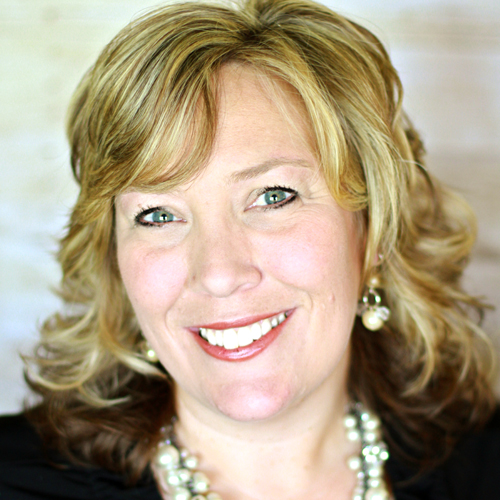
View Details / Enroll
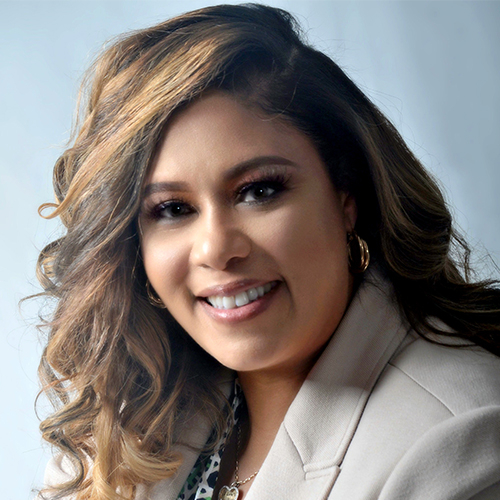
Sharpening Your Knowledge of Fetal Heart Monitoring Concepts

Lashea has been practicing in the area of obstetrical/perinatal nursing for nearly 26 years. Her clinical and educational experience and expertise span labor/delivery, antepartum and mother/baby areas. Lashea has worked as a board-certified clinical nurse specialist for women’s services at a large healthcare system, she was a nursing instructor and a previous perinatal outreach educator. These roles allowed her the ability to provide continual high-risk perinatal education to various hospitals and to reach audiences across her region. This has led to her current role and success as founder and owner of her own nursing mentoring and education consulting company Perinatal Potpourri. She is also a Designated Instructor Trainer in Fetal Monitoring and Obstetric Patient Safety through AWHONN. Lashea holds two certifications through NCC and currently provides in-services and seminars nationally for Inpatient OB and EFM reviews, respectively.
In addition to being an active AWHONN member, Lashea was recently elected as the Vice Chair of the AWHONN Section Advisory Committee. She was appointed to this position because of her activism and success as the 2-term elected Georgia section chair. LaShea was appointed as the lead for Georgia in the AWHONN Postpartum Hemorrhage & Empowering Women projects. She was selected as the lead facilitator in the state of Georgia to assist with the rising rate of maternal deaths because she has successfully moved her region to become more active with lectures, networking, and current trends. Lashea’s expertise in this area is demonstrated in her most recent honor, AWHONN's highest honor the Distinguished Professional Service Award Winner of 2022 and The Award of Excellence in Education, respectively. It's also noteworthy to mention she has won the March of Dimes 2018 Georgia Nurse of the Year Award and the 2015 AWHONN Award of Excellence in Community Service. She is an energetic speaker, whose goal is to fully engage the audience in her presentations, leaving them excited and ready to learn more.
This presentation will assist labor & delivery nurses in sharpening their skills and foundation for interpreting fetal heart monitoring tracings. Beginning with a brief review of the basic physiology of acid base interpretation, we will discuss appropriate terminology for electronic fetal monitoring (EFM) using the terminology established by the National Institute of Child Health and Development. We will compare and contrast categories of fetal heart rate patterns and discuss their associated interventions. Finally, we will establish a core set of elements for creating a plan with the patient and care team for the physiologic management of the second stage of labor. This presentation offers labor and delivery nurses the opportunity to ensure their ability to read and respond to EFM during labor is up to date and consistent with national and international guidelines.
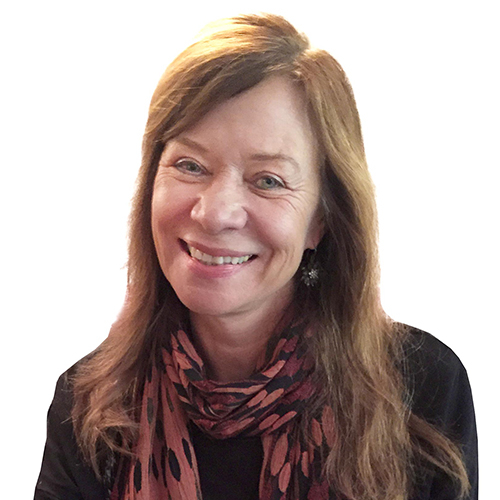
Shoulder Dystocia: Prediction, Prevention, and Appropriate Response

Renowned expert Elizabeth Davis has been a midwife, reproductive health care specialist, educator and consultant for over 40 years. She is internationally active in promoting physiologic, undisturbed birth and is widely sought after for her expertise in midwifery education, legislation, and organizational development. She is the author six widely translated books on birth, sexuality, and female psychology, including “Orgasmic Birth: Your Guide to a Safe, Satisfying, and Pleasurable Birth Experience,” “The Rhythms of Women’s Desire: How Female Sexuality Unfolds at Every Stage of Life,” and the textbook “Heart & Hands: A Midwife’s Guide to Pregnancy and Birth,” now in an updated 2019 5th edition (see https://elizabethdavis.com for details). She served as Regional Representative and Education Committee Chair for the Midwives Alliance of North America (MANA), as President of Midwifery Education Accreditation Council (MEAC), and as midwife consultant to the State of California’s Alternative Birthing Methods Study. She is the recipient of the California Association of Midwives’ Brazen Woman Award, and Midwifery Today’s Lifetime Achievement Award. She is Co-founder of the MEAC accredited National Midwifery Institute, and author/instructor of Heart & Hands Coursework.
Shoulder dystocia is considered one of the most dangerous complications of birth, as corroborated by the high number of malpractice claims resulting from it. Despite this, experts cannot agree on what defines it, what causes it, or whether or not it is possible to predict it. As for treatment, the HELPERR mnemonic is standard of care, but is this truly the best response with fully mobile clients, or does it reflect the limitations of hospital birth with epidural anesthesia?
In this presentation, the physiology of undisturbed birth, including cardinal movements the baby must accomplish to minimize the likelihood of shoulder dystocia developing, will be explained, with an examination of how common hospital practices, such as the use of Pitocin during labor or maternal positioning in second stage, can undermine these. Because this complication carries a high degree of urgency, time-efficient techniques will be presented for both anterior shoulder dystocia and bilateral shoulder dystocia, with indications for follow up for the birthing person and the newborn.



